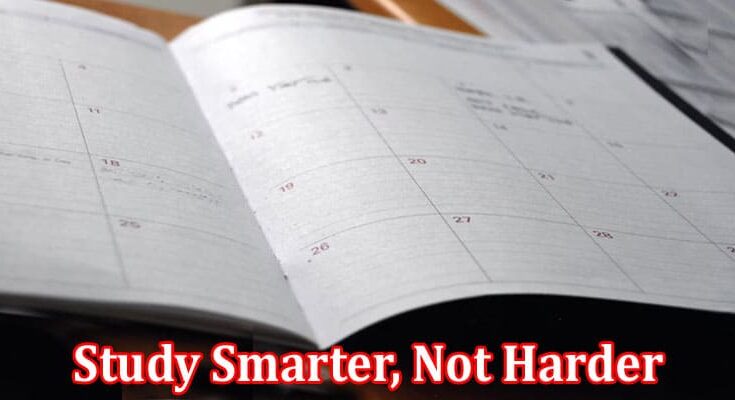At some point, a lot of students come to the realization – their old high school study habits are not useful in college. It’s understandable – college life is quite different from a high-school routine. The classes are longer, exams now weigh more, the curriculum, in general, is more demanding, and the overall process is more challenging. And amid all of this, sometimes you may feel like the work you’re doing is insufficient.
But don’t freak out yet – it doesn’t mean there’s something wrong with you or the way you absorb the material. It simply means you need to learn more effective study techniques. Sometimes we need to think outside the box, work and study smarter, not harder. Luckily, there are tons of tips and tricks to help you with that. Let us look at some of them.
Give up on multitasking
Numerous studies have shown that multitasking, contrary to general belief, is not effective and negatively impacts your learning outcomes. If you want to study smarter, you need to minimize distractions during study sessions. It’s not only about using phones and computers while studying, it’s also about your other academic tasks. Sometimes it’s better to hire a history essay writer and focus solely on math, for example. Distractions of any kind are not good while studying.
Eliminate social media, web browsing, gaming, and texting at least for a couple of study hours. These seemingly insignificant things can severely disrupt your concentration and break the study process. Avoid using computers or phones as much as you can unless they’re necessary for your studies. If you have several tasks in different subjects for the same day – prioritize them, do one at a time, then do another. Multitasking is a great skill for a lot of jobs, but not the best one for studies.
Break it down into chunks
This is especially useful in the time we live in now. Most of us can’t stay focused for 3-5 minutes straight due to the tons of short videos we consume every day. If you can’t even watch a 20-minute video on YouTube in one sitting, how are you supposed to sit with the book for like an hour? Sounds impossible. That is why you need to break down your study sessions into smaller, more manageable segments.
This approach can help you avoid distractions and prevent burnout. And most importantly, it allows you to focus for longer periods. Over time, your concentration span will improve, just like a muscle that gets stronger with exercise. Overall, our brains are better equipped to absorb and retain information in shorter bursts. It’s much easier than trying to cram too much information in one sitting. But keep the balance – getting breaks every 15 or so minutes won’t make you learn anything as well.
Don’t study at night
Well, some people may say they are more productive in the evening. But loading your brain before bedtime is not the best decision. This is what is actually hard, not smart, even if it seems perfect for you. You already know the obvious consequences of staying up late like a disrupted sleep schedule. But it also affects the way you assimilate your study material. Because at night, our body is programmed to get a good sleep and rest, not to study or work.
It may be hard sticking to the sleep schedule with constant deadlines and an extreme academic load, especially during the final year. But no one forbids you to use essay writing services. Why not hire a dissertation writer and get a good rest at night? Our brains process information and generally perform better when we’re well-rested. And though at first, it may seem like you can do anything at night and live like that forever, you’ll see the consequences in a few weeks of such a lifestyle. Don’t underestimate the importance of good sleep!
Explain the material to yourself
Yet another effective study strategy. Try to explain the material in your own words, sort of like you’re a teacher. You can do this alone, but it’s best to involve friends or study partners. Instead of learning the textbooks by heart, explain the material verbally several times. This way, you can see what exactly you need to brush up on and what topics you need to learn more about. Trying to remember everything from the book at once is not effective at all.
Initially, you may need to rely on your notes to explain the stuff you’ve learned. But over time, you’ll be able to recall everything without them. Simple reading won’t make the information stick in the back of your mind for long. Instead, read it once, try to explain what you’ve read. Determine things you couldn’t remember, read the topic one more time. Repeat till you can remember and explain everything in your own words. Extremely useful, effective, and not boring, especially with friends.
But learning facts and dates is not the only thing we do at college. Very often you need to write papers on some abstract topics. And you need to proofread them very well before submitting them. Luckily, the best essay editing services are always there to help you with that. If you feel like you’d better pay for an essay and rehearse the study material with your friends one more time – this is the option for you.
Conclusion
Studying smart, not hard is possibly the best skill you may get as a student. Hopefully, these 4 tips will make your academic life much easier.

Caroline is a dedicated writer with a passion for keeping readers informed. Specializing in providing the latest news updates and unbiased reviews, she strives to deliver accurate and insightful content. With a keen eye for detail and a commitment to journalistic integrity, Caroline ensures that her readers are always well-informed. Stay tuned for her latest articles to stay up-to-date on current events and trends.




